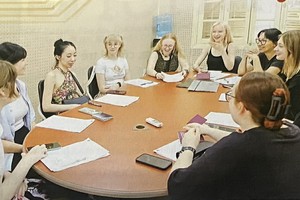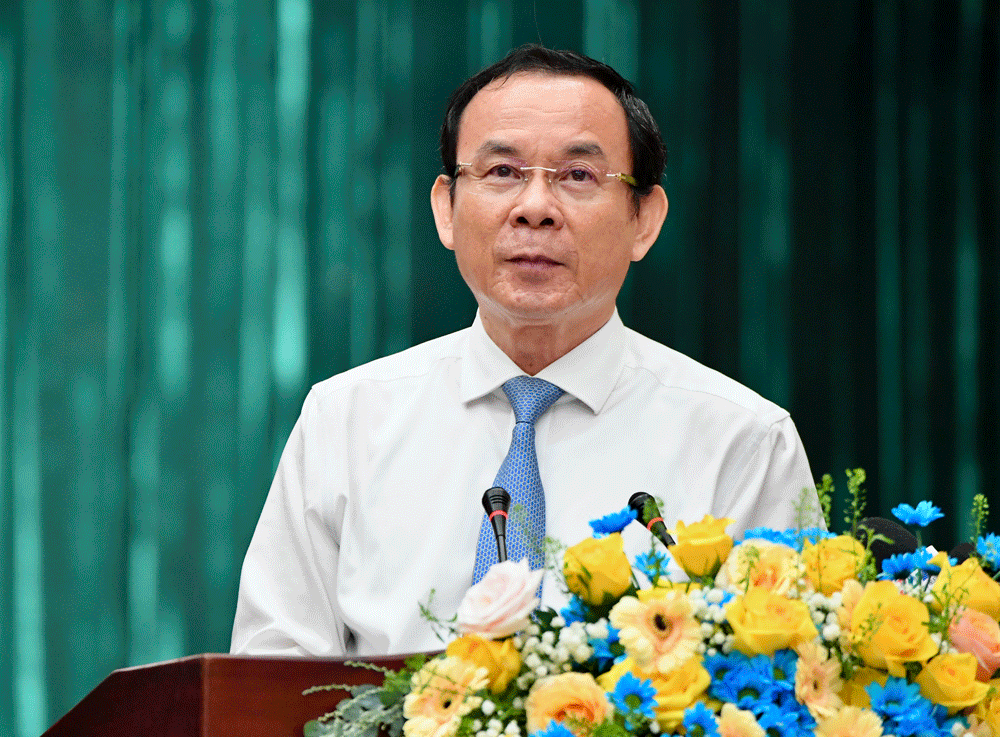 Secretary of the Ho Chi Minh City Party Committee Nguyen Van Nen speaks at the meeting ( Photo: SGGP)
Secretary of the Ho Chi Minh City Party Committee Nguyen Van Nen speaks at the meeting ( Photo: SGGP)
This morning, the Ho Chi Minh City Department of Education and Training held a conference to summarize the 2021-2022 school year and deploy the tasks for the 2022-2023 school year with the participation of Associate Professor Nguyen Van Phuc, Deputy Minister of Education and Training.
Regarding school facilities, Deputy Director of Ho Chi Minh City Department of Education and Training Le Hoai Nam said at the conference that many localities are facing difficulties due to the pressure of mechanical population growth, and high population density whereas there is not enough classroom for two shifts a day, especially when implementing the General Education Program 2018.
In addition, many schools encountered difficulties in equipment and teaching aids to meet the requirements of the 2018 National Curriculum, affecting the improvement of education quality. Appealing to the establishment of non-public schools aims to implement the policy of socialization of education faces many difficulties due to the lack of land funds in localities, and the procedures for changing land use purposes.
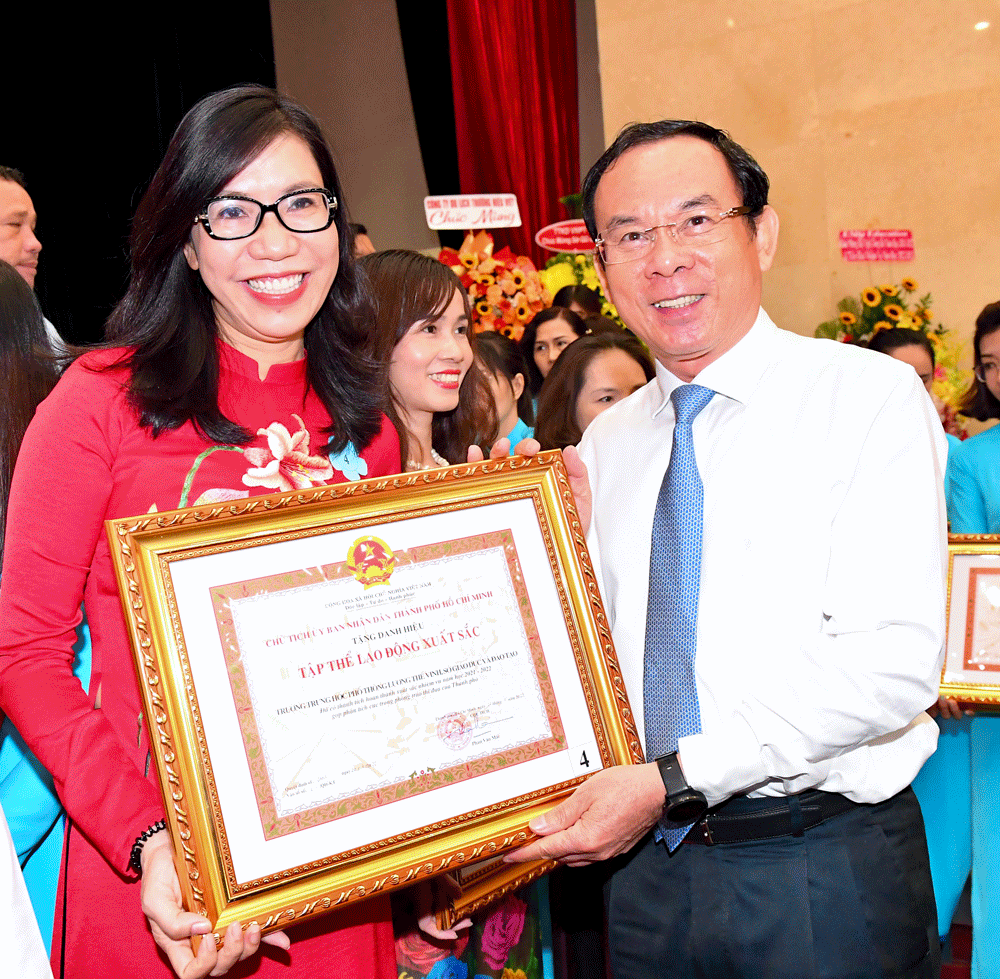 Secretary Nguyen Van Nen gives certificates of merit to a teacher ( Photo: SGGP)
Secretary Nguyen Van Nen gives certificates of merit to a teacher ( Photo: SGGP)
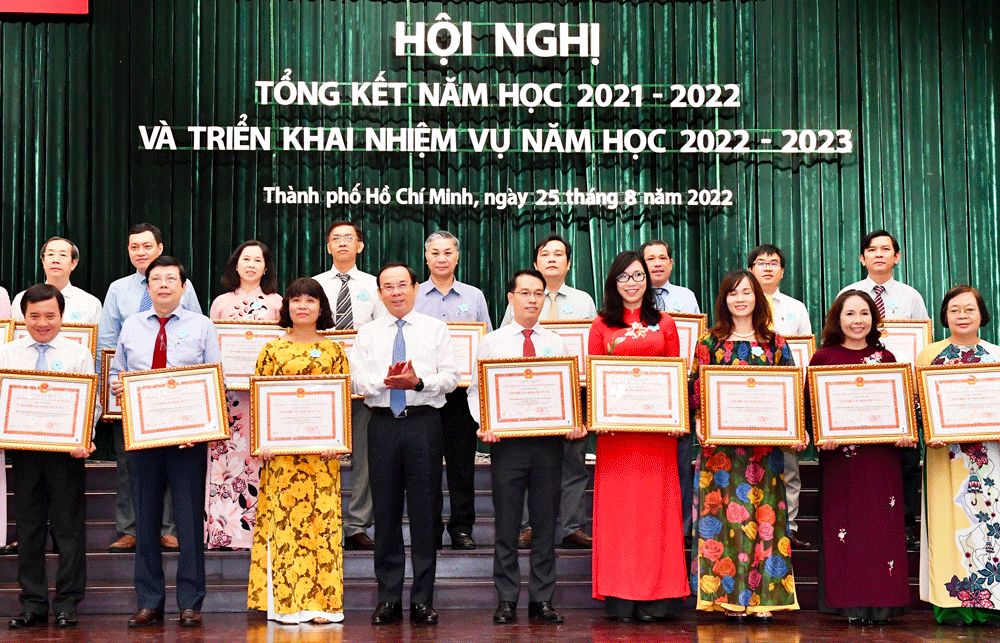 Awarded teachers at the meeting (Photo: SGGP)
Awarded teachers at the meeting (Photo: SGGP)
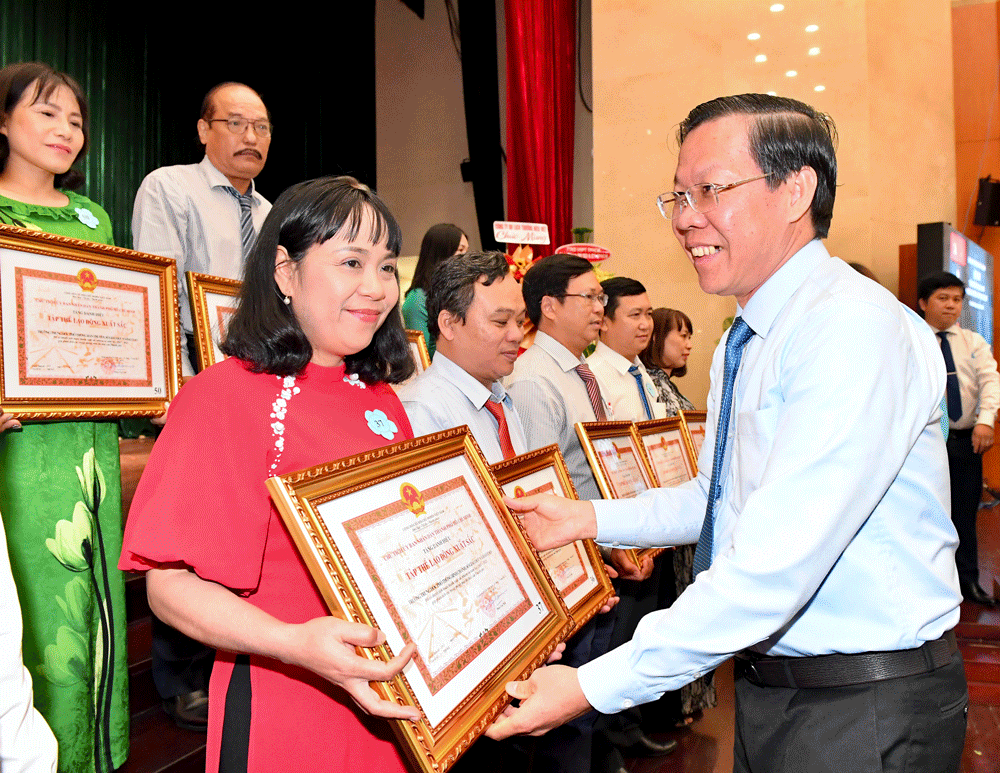 Chairman of Ho Chi Minh City People's Committee Phan Van Mai awards the title of Excellent Labor Collective to school representatives ( Photo: SGGP)
Chairman of Ho Chi Minh City People's Committee Phan Van Mai awards the title of Excellent Labor Collective to school representatives ( Photo: SGGP)
In terms of staff, teacher recruitment has had many innovations in the direction of strong decentralization for educational institutions. Currently, the city has many specific policies to support and take care of the living conditions of teachers and staff in the education sector.
The recruitment of teachers in the school year 2021-2022 is slow due to the impact of the Covid-19 epidemic, leading to a shortage of teachers, especially teachers of English, informatics, technology, and music. The ratio of teachers/classes is not enough to meet the requirements, especially for teaching two shifts a day.
In general, in the academic year 2021-2022, the education sector has effectively implemented many innovative policies, which are reflected in the training topics for administrators to teachers. In addition, the sector has innovated teaching methods, tested and assessed students, and promoted the application of information technology to school management and teaching implementation.
Assessing the results of the school year 2021-2022, the leaders of the Ho Chi Minh City Department of Education and Training acknowledged that the online teaching period is quite long whereas some students do not have learning devices such as smartphones or laptops.
Worse, little interaction between teachers and students has partly influenced the learning results of students, especially first-grade students. In addition, studying online for a long time also affects the psychology and life skills of students.
He added that some foreign language and informatics centers have a bad sense of law observance while other centers have not paid attention to upgrading facilities, teaching staff, using foreign workers, fire prevention, and fighting. Furthermore, they put untrue ads on social media.
The leader of the education sector in HCMC pointed out the culprit of the remaining that weak sanctions can’t deter people from committing violations.
From those facts, Director of Ho Chi Minh City Department of Education and Training Nguyen Van Hieu said that in the 2022-2023 school year, the education sector sets out key tasks such as improving the efficiency of administrative reform and state management, increased decentralization, strengthen the autonomy associated with self-responsibility for educational institutions, and promotion of the construction of schools meeting the national standards.
At the same time, the education sector continues to flexibly apply teaching methods and forms to develop students' capacity and quality and continues to expand the model of advanced schools with the purpose of international integration in addition to the promotion of digital transformation, administrative reform and the application of information technology.
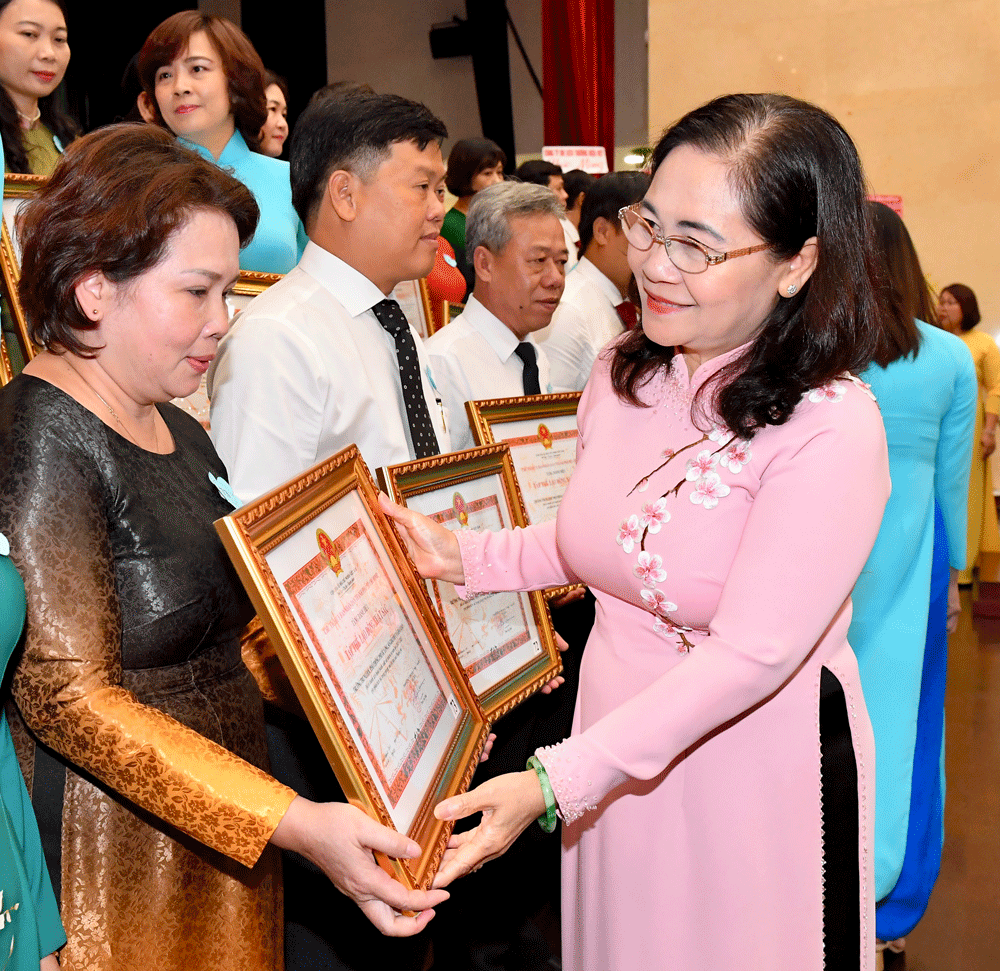 Chairwoman of the Ho Chi Minh City People’s Council Nguyen Thi Le awards the title of Excellent Labor Collective to school representatives ( Photo: SGGP)
Chairwoman of the Ho Chi Minh City People’s Council Nguyen Thi Le awards the title of Excellent Labor Collective to school representatives ( Photo: SGGP)
In the academic year 2022-2023, the education sector will continue to develop shared digital repositories including electronic lectures, television lectures, multimedia digital learning materials, electronic textbooks, and software simulations and other materials, developing an online question bank system for all subjects.
In particular, the sector will accelerate social contribution by attracting investment resources in education, reviewing investment conditions, and tax and land policies in the field of education in order to reduce unnecessary procedures, simplify investment procedures and strengthen the application of information technology to ensure transparent information.
Speaking at the conference, Secretary of the Ho Chi Minh City Party Committee Nguyen Van Nen said that the country in general and Ho Chi Minh City, in particular, are in the process of implementing a fundamental and comprehensive reform of education.
First of all, he said, it is necessary to innovate in thinking, approach, and bravely change yourself from management staff to teachers. Mr. Nen emphasized that the education sector needs to pay attention to a number of issues such as where innovation begins and in what direction to implement it properly.
